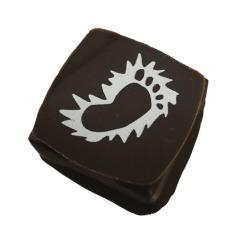-
Welcome to the eG Forums, a service of the eGullet Society for Culinary Arts & Letters. The Society is a 501(c)3 not-for-profit organization dedicated to the advancement of the culinary arts. These advertising-free forums are provided free of charge through donations from Society members. Anyone may read the forums, but to post you must create a free account.
Dishwasher Soap
-
Similar Content
-
- 38 replies
- 10,866 views
-
- 38 replies
- 10,866 views
-
- 4 replies
- 2,209 views
-
- 1 reply
- 3,473 views
-
Sharing For Anyone Interested - New Safety Sign We Made & Posted By All Our "Low Temp-(sanitizing)" Commercial Dishwasher's Chemicals - Recommended
By jimtmcdaniels,
- 1 reply
- 3,087 views
-
-
Recently Browsing 0 members
- No registered users viewing this page.






Recommended Posts